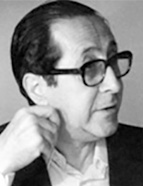

Armando Castro had two very different experiences as a historian. These experiences were closely linked to the essential rupture that 25 April 1974 represented in the Portuguese political chronology. In his first academic life, before the Carnation Revolution, as a researcher , he was the ‘Sunday historian’. This expression was coined by Philippe Ariès when he introduced himself to Michel Winock in an interview. In fact, Ariès would only obtain a position at the Centre national de la recherche scientifique [National Centre for Scientific Research] in 1978, at the age of 64. Prior to this professional change, which officially integrated him into French academic life, Ariès was only able to do research at the time he had left outside of his professional occupations. In this sense, and to the extent that he was prevented from joining a Portuguese university for political reasons during the Estado Novo, Armando Castro also had to work as a lawyer. Only in his spare time could he devote himself to writing History. His only teaching experience before 25 April was at the Higher Institute of Applied Psychology. There, he taught Introduction to Human Sciences between 1970 and 1973. However, when this institute was recognised by the state, his contract was not renewed due to an impediment from the Directorate-General for Security. This is how Armando Castro summarised his early life, which was divided between practising law and conducting research during the dictatorship: ‘Practising law under the tragic conditions of always having as little work as possible to be able to continue my research. Sometimes I went below that minimum and had problems making ends meet. This is how things were for more than thirty years. Sometimes I had no money to pay the rent. When I had a bit more to do, I was bitter because I had no time for my work’ (AA.VV., ‘ Interview with Armando Castro by António Mendonça, Carlos Bastien, Elivan Ribeiro ’ , in Vértice [V e rtex] , July 1988, no. 4, p. 100). His second life, radically different from his previous one, began shortly after the April Revolution when he took up a chair at the School of Economics in Porto. He remained there until he retired in 1988, having reached the age limit. During this period, he was already a professional historian who could write and teach Economics and History to undergraduates. By studying his intellectual and civic career, we can gauge the importance of politics in the historian ’ s life and thinking.
This work is financed by national funds through FCT - Foundation for Science and Technology, I.P, in the scope of the projects UIDB/04311/2020 and UIDP/04311/2020.
